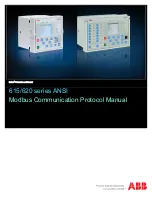
CHAPTER 1
4
RCM Dry Manure/Litter Setup Guide
HARNESS ROUTING
The word “harness” is used to describe any electrical cables and leads, both bundled and unbundled. Use the
following guidelines and recommendations when connecting and routing harnesses while installing or maintaining
this Raven system:
• Leave protective caps/covers over harness connectors until needed to avoid dirt and moisture from
contaminating electrical circuits.
• Secure the harness to the frame or solid structural members at least every 12 in [30 cm].
• Follow existing harness runs already routed on the implement as much as possible. Proper harness routing
should:
•
Secure harnessing and prevent the harness from hanging below the implement.
•
Provide sufficient clearance from moving components and operational zones around shafts;
universal joints and suspension components; pulleys, gears, belts, and chains; moving linkages,
cylinders, articulation joints, etc.
•
Protect harnessing from field debris and surrounding hazards (e.g. tree limbs, fence posts, crop
stubble, dirt clumps or rocks that may fall or be thrown by the implement).
•
Protect harnessing from sharp bends, twisting, or flexing over short distances and normal
implement operation.
•
Connectors and splices should not be located at bending points or in harness sections that move.
•
Ensure sufficient length for free movement of the implement during normal operation and prevent
pulling, pinching, catching, or rubbing, especially in articulation and pivot points. Clamp harnessing
securely to force controlled movement of the harness.
•
Avoid abrasive surfaces and sharp edges such as sheared or flame cut corners, fastener threads or
cap screw heads, hose clamp ends, etc.
• Do not connect, affix, or allow harnessing to come into contact with components with high vibration forces, hot
surfaces, or components carrying hot fluids beyond the temperature rating of harness components.
•
Harnessing should be protected or shielded if routing requires the hose to be exposed to
conditions beyond harnessing component specifications.
• Avoid routing harnesses in areas where damage may occur due to build up of material (e.g. dirt, mud, snow,
ice, etc.).
• Avoid routing harnesses in areas where the operator or service personnel might step or use as a grab bar.
IMPORTANT:
Avoid applying direct spray or pressure washing of electrical components and connections. High pressure
streams and sprays can penetrate seals, cause corrosion, or otherwise damage electrical components.
When performing maintenance:
• Inspect electrical components and connectors for corrosion, damaged pins or housings, etc. Repair or replace
components or harnessing as necessary.
• Ensure connectors are kept clean and dry. Apply dielectric grease to the sealing surfaces of all connections
exposed to moisture, dirt, debris, and other contaminates. Repair or replace harnessing as necessary.
• Clean electrical components with pressurized air, aerosol electrical cleaning agent, or low pressure rinse.
• Remove visible surface water from electrical components and connections using pressurized air or an aerosol
cleaning agent. Allow components to dry thoroughly before reconnecting cables.
Содержание RCM
Страница 22: ...CHAPTER 3 20 RCM Dry Manure Litter Setup Guide ...
Страница 46: ...CHAPTER 6 44 RCM Dry Manure Litter Setup Guide ...







































